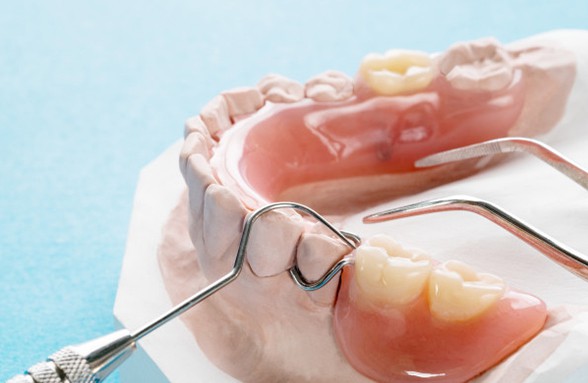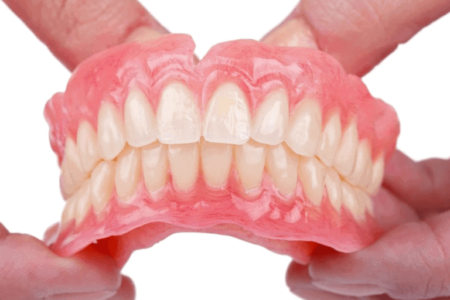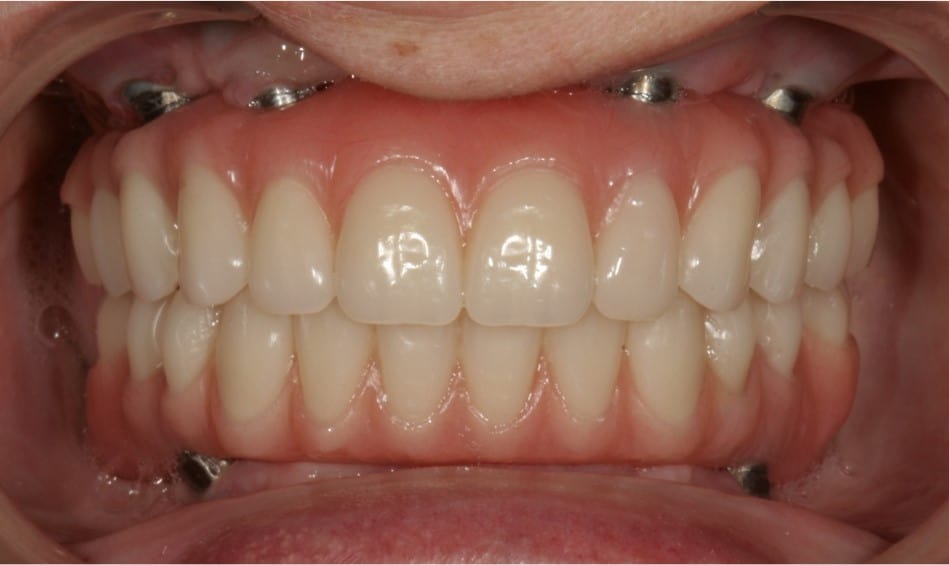What You Need To Know About Dentures
If you’ve recently lost one or more teeth, you may be wondering what your treatment options are. While dental implants are a popular and effective tooth replacement option, they’re not right for everyone. Luckily, there’s another option that has been around for centuries: dentures. We’ll give you a guide so that you can make an informed decision about whether or not they’re right for you.
What Are Dentures?
A denture is a prosthesis that is placed to assist in the replacement of missing teeth. A denture can be for the upper or the lower jaw, they can be partial (replacing only a few teeth) or they can be full (replacing all teeth on either jaw).
1 - Partial denture
A partial denture is often used instead of other tooth-replacement methods when the surrounding natural teeth are not strong enough to support structures such as dental bridges, or when more than one or two teeth are missing.
The partial denture is fitted to the part of the gum line that they will sit on and fastened to nearby natural teeth to keep from falling out of place.
They are not permanently fastened, however, and can be easily taken out at any time for cleaning and while sleeping.


2 - Full denture
A full denture, otherwise known as a complete denture, are dentures that replace all of your natural teeth. You can have them fitted for your top or bottom gum line, and are held in place by suction and/or the help of an oral adhesive. Just like partial dentures, they are easily removable.
Dentures are an effective and affordable way to replace missing teeth but it’s important to be informed about the pros and cons before making a decision. We hope that this blog post has helped you do just that! If you have any questions or would like to schedule a consultation, please don’t hesitate to contact our office.
How to Care for Your Denture?
Caring for your denture is important in order to keep them clean and prevent them from becoming stained or cracked. Be sure to brush your denture daily with a soft-bristled brush and nonabrasive soap. You should also soak them in a mild denture cleanser overnight to remove any plaque or buildup that has accumulated during the day. In addition, it’s important to schedule regular visits to the dentist so that they can check the fit of your denture and make any necessary adjustments.
3 – Implant-Supported Dentures or Overdenture
A denture can also be made to attach to an implant to help provide a denture that is more stable in the mouth where there are no teeth left in the mouth to stabilise the denture. A denture can assist in ensuring a better quality of life, can assist with better chewing, and can improve aesthetics helping bring confidence to patients.
The first step in getting implant-supported dentures is to have a consultation with our cosmetic or specialist dentist. They will evaluate your mouth to make sure you are a good candidate for the procedure.
Once it has been determined that you are a good candidate, the next step is to have the implants placed. Once the implants have healed, you will return to the dentist to have the denture or bridge made.

What Are the Benefits of Implant-Supported Dentures?
There are many benefits to choosing implant-supported dentures over traditional dentures. They include:
Improved comfort: Traditional dentures can be uncomfortable and unstable. They can slip and rub against the gums, causing irritation. Implant-supported dentures are more comfortable because they are securely attached to the implants.
Improved chewing: Traditional dentures can make it difficult to chew properly. This can lead to indigestion and malnutrition. Implant-supported dentures allow you to chew more effectively, making it easier to digest food and absorb nutrients.
Improved speech: Traditional dentures can slip and move around in the mouth, making it difficult to speak clearly. Implant-supported dentures are much more stable, so you can speak with confidence.
Improved appearance: Traditional dentures can cause the face to collapse, making you look older. Implant-supported dentures can help to restore the natural shape of your face.
Are Implant-Supported Dentures Right for Me?
Implant-supported dentures may be right for you if you are unhappy with your traditional dentures or if you are missing all of your teeth. The best way to find out if they are right for you is to consult with your dentist. They will be able to evaluate your mouth and make a recommendation.
How long do implant-retained dentures last?
Implant-retained dentures can last for many years with proper care and maintenance. However, the lifespan of the implants themselves may be shorter, depending on a number of factors. For example, people who smoke or have diabetes are at a higher risk for implant failure.
In addition, people who do not follow instructions for proper oral hygiene or who have clenching or grinding habits may also be more likely to experience implant failure. Therefore, it is important to consult with a dental professional to see if implant-retained dentures are right for you and to discuss all of the potential risks and benefits before moving forward. Implants have the ability to last a lifetime with proper care.
Do implant-supported dentures have to be removed at night?
The dentures need to be removed at night and cleaned. The attachments and/or bar need to be cleaned as well. Your dentist will give you instructions on how to clean these as they can be delicate.
How many implants are required for dentures?
In general, implant-retained dentures (also known as overdentures) that are being utilized for full teeth replacement on the upper or lower dental arch require only a few dental implants to successfully and comfortably stabilize the denture. For some patients, two to four dental implants are sufficient. For others, six or more implants may be necessary.
How much Implant-Supported Dentures cost?
The cost of implant-supported dentures varies depending on the number of implants needed and the complexity of the surgery. In general, they are more expensive than traditional dentures. However, many insurance companies will cover at least part of the cost.
